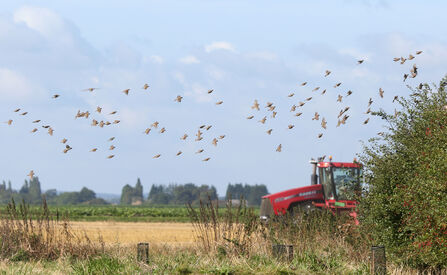Agriculture - as the collective effort to feed humanity - is the largest contributor to biodiversity loss globally and locally [State of Nature 2023]. Wildlife is suffering, and it's essential that we recover healthy ecosystems in our changing world to prevent the worst effects of climate change and biodiversity collapse (and increase agricultural resilience, too).
At the same time, we all need to eat and we are each consumers in the global food system.
Our food system is broadly based on production for the lowest price; to make as much food as possible for as many people as possible as cheaply as possible - all made doable with the ready availability of fossil fuels, artificial fertilisers, and agricultural chemicals. Global agriculture and food production is also buoyed by the cheap supply of labour in the ‘global south’.
This system has driven gains in productivity, providing cheap food by increasing intensification of farming – but leading to catastrophic declines in biodiversity.





